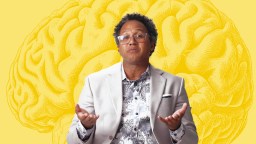Michele Gelfand: Yes, so I wrote this book to give a lens to people to view the world differently. It's something that we take for granted every day, the kind of rules that we follow. They're omnipresent but they're invisible. So from the moment we wake up until the moment we go to sleep we're following rules. Most of us put clothes on before we go out in the street, most of us ride on the right side or the left side depending on where we live, we say hello and goodbye on the phone, we follow these rules all the time.
But some groups have very strong rules. They're what I call "tight cultures" where there's strong rules and little tolerance for deviance, and other groups—what I call "loose groups"—are much more permissive, and they have a wide range of behavior that's seen as appropriate. And this lens is really very powerful. It helps us to understand things from politics to parenting, from nations to neurons.
A general principle about tight and loose is that groups that have more power live in looser worlds. They have more latitude. And groups that have less power – women, minorities, other identities that are stigmatized – they live in tighter worlds. They're subject to stronger punishments for the same exact behavior. And I've shown this actually with some research we published in Psych Science, a journal in my field, some years ago. But you can see other evidence of it all the time. You saw it in the U.S. Open this past weekend with Serena Williams who argued that these refs would never call the same kinds of punishments and penalties on a white male tennis player.
Cultural intelligence is more than just knowledge about other cultures. That's certainly part of it, one dimension that's clearly just about knowledge of the culture. But it's also about your motivation to interact with people in different cultures. That's actually one of the most important parts of cultural intelligence, is having that kind of openness to see diversity as opportunity versus a threat. That predicts people doing much better when they're crossing cultures. And there's also a sense of "metacognition," which is a fancy way of saying, "thinking about what you know about culture, questioning what you know about it."
So there's multiple dimensions of cultural intelligence and we can assess it. We can measure it, and we can use it to predict how well people will do on international assignments, in negotiations that are cross-cultural. So it's really an incredibly important construct.
And again in this globalized era we really need to move beyond IQ and EQ. You can have great intelligence but have no cultural intelligence. You can have emotional intelligence but you can also fail on CQ. So it's really an incredibly important attribute to cultivate.
And the kids have been noticing this. As females they say, "You know mom, we're living in a tighter world than our male counterparts." When they play sports you hear the referee's whistle going off way more. And so I think it's also important to train them to think about the worlds they're living in, to think about how they themselves are going out in the world, are going to be subject to the strength of norms and to try to think about how to negotiate that.





